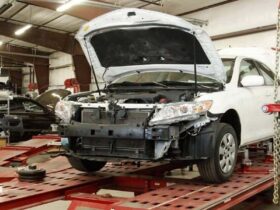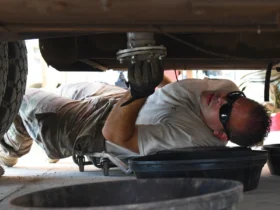An essential part of a car’s transmission system is the clutch. It makes it possible to link and separate the engine’s power to the wheels, allowing for seamless gear changes and speed control. It is impossible to exaggerate the significance of a well-maintained clutch for commercial cars, which often see extensive use and bear big weights. Fuel economy is directly impacted by a number of performance problems that might arise from a worn-out or faulty clutch. Reducing operating expenses via better vehicle performance is crucial as companies want to remain profitable.
The Effect of a Damaged Clutch
A clutch that is worn out may lead to a number of issues, such as sliding, dragging, or trouble disengaging. These problems may seriously impair the car’s performance, causing the engine to work more to keep the speed constant. Because of this, a car with a malfunctioning clutch may use more gasoline as the engine has to work harder to make up for the decreased efficiency of power transmission. As a consequence, gasoline costs may rise significantly for enterprises, which may eventually hurt their bottom line. Such problems may be avoided and cars can operate at peak efficiency with regular clutch checks and prompt European Auto Repair in Oceanside, CA.
Indices Your Clutch Needs Maintenance
Early detection of clutch degradation may result in considerable financial savings for enterprises. Unusual sounds made while engaging or disengaging the clutch, a mushy or sluggish pedal, and trouble shifting gears are common signs of a clutch problem. Drivers may have a sliding clutch if they report that the engine revs without the vehicle moving faster. Businesses may avoid a minor repair turning into a more serious mechanical issue that compromises fuel economy by identifying these indicators and taking timely action via periodic maintenance.
The Relationship Between Fuel Savings and Clutch Repair
Putting money into clutch maintenance and repair is a proactive way to increase fuel economy. An efficient clutch facilitates smoother transitions and improved gear engagement, which keeps the engine running within its ideal range. The engine may operate more efficiently and benefit from lower load and fuel consumption when the clutch is in excellent condition. Regular maintenance regimens for their fleets should be given top priority, and clutch inspection, adjustment, and replacement should be done as required. By doing this, companies may save long-term expenses by increasing fuel economy and prolonging the life of their cars.
In conclusion, a wise business decision
It is impossible to overstate the significance of clutch maintenance in preserving business cars’ fuel economy. Businesses must discover methods to maximize performance without sacrificing dependability and safety as operating costs climb. Businesses may benefit from better fuel efficiency and increased profitability by routinely maintaining and repairing their clutches. In a cutthroat industry, taking care of these apparently little mechanical parts may save a lot of money and guarantee that cars operate well, which benefits the company’s bottom line.











